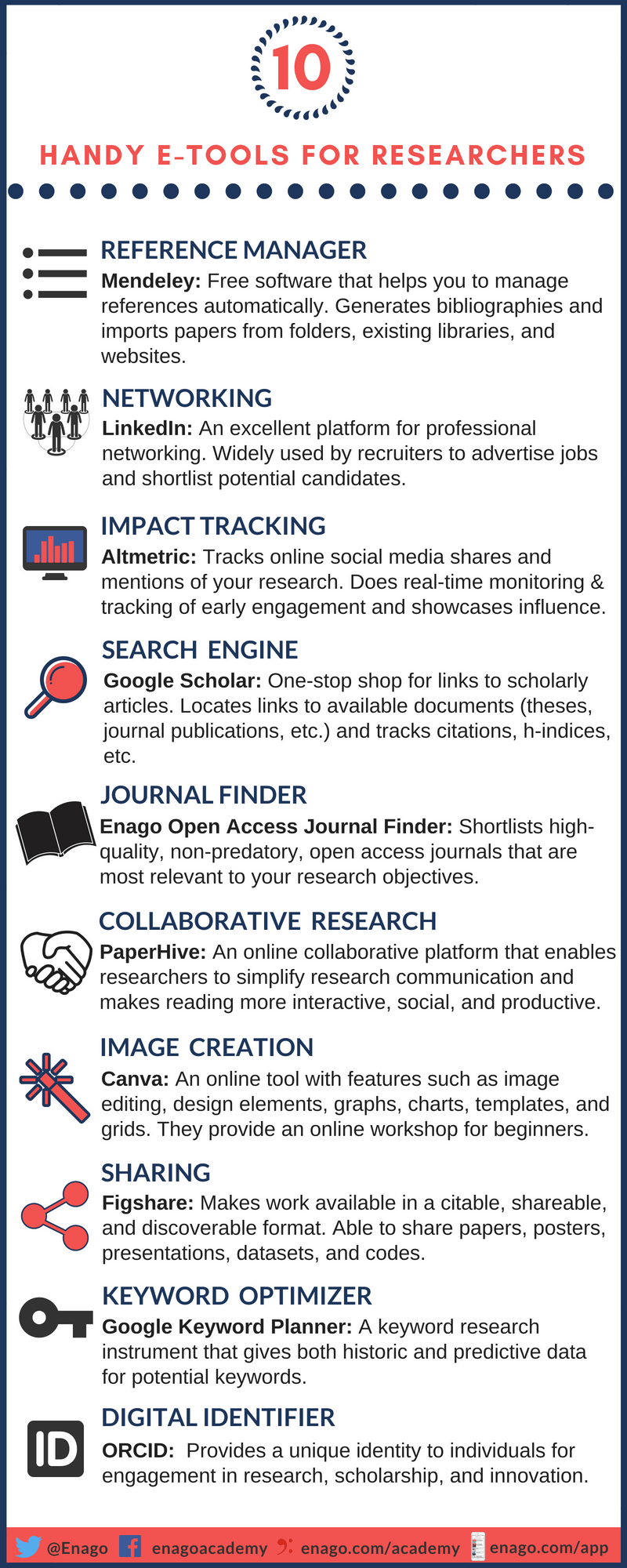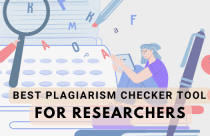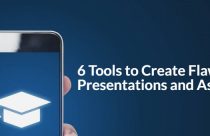Free E-Tools for Smart Researchers: Mendeley, ResearchGate, Google Scholar, and More…

Researchers can now use many online tools to promote and share their work. They can also communicate with others, measure the impact of their publications, or access relevant information in their field. In this age of the internet, mobile devices, and social media, networking is becoming an essential way to stay in touch with colleagues, start new collaborations, and let the world know what you are doing.
Knowing Isn’t Enough
Most academics are aware of the benefits of using LinkedIn, ORCID, or Twitter to draw attention to their work—and an increasing number of them are actually getting started on at least one of these platforms. Saving new results in preprint archives or sharing them in blog articles and internet services such as ResearchGate—or even presenting them as online videos, images, or slides—can also be an excellent way to reach more people and enhance one’s research impact. Additionally, this impact can be easily monitored using tracking tools, such as Altmetric.
Despite all these possibilities, in a recent opinion article published in F1000Research, Anthony J. Williams and his colleagues from the Environmental Protection Agency in Durham, US, point out that only a few scientists apply online tools effectively; the majority fails to take advantage of these services to raise awareness of their research achievements.
Making the Best Use of Online Tools
In their paper, Williams et al. discuss some available free online platforms and describe their experiences with these tools over a period of five years. The authors also suggest ways to make the best use of them considering that non-traditional sources of scientific information are becoming increasingly important (and will surely continue to grow in the future). According to Williams and his colleagues, sharing, networking, and outreach of research work could bring benefits for the performance and impact of scientists—a trend that they call the “new alchemy” of science.
One of the most obvious benefits is that altmetric scores could be used by grant agencies and other institutions to assess the individual performance of a scientist, independent from the impact factors of the journals in which he or she has published. However, using online tools requires time and effort, which can distract from other important activities, such as research, reviewing, or teaching.
Networking and Data Sharing—It’s Worth the Effort!
Based on their study, the authors believe that it is worth the effort. Williams et al. found that investing time in sharing data can directly benefit a scientist’s career, especially considering the growing attention given to altmetrics. This could lead to new collaborations, new funding, or even facilitate new discoveries, the researchers say.
The article divides the online tools into four main categories: networking, sharing, tracking, and amplification, although many of these platforms may serve more than one function. The authors summarize their results as follows:
Networking: LinkedIn is one of the main networking tools for academics, but it should be used exclusively for professional matters, not for family events or informal-activity sharing. The platform is appropriate for showcasing a researcher’s work or posting updates on recent activities and other interesting subjects. Keeping the posts short and adding images usually leads to more views and “likes”. Also, positive news (for example an announcement about a new job) can quickly gather momentum. In LinkedIn, researchers can also share links to their latest publications or insert PowerPoint presentations, PDF files, and others.
ResearchGate and Academia are great tools for networking publications and may also provide a suitable platform for technical questions and answers. However, any uploads of published material to these services requires permission from the publisher.
Sharing: There are many social sharing platforms available. The most popular ones are Facebook and Instagram, but these are most commonly used for personal purposes. Blogs, Twitter, and Google Plus seem to be more appropriate for career-related matters. Presentation-sharing platforms, such as SlideShare, are also an excellent way to showcase a researcher’s work, and video-sharing tools, such as YouTube, Vimeo or Weibo may also be a good option. Of course, academic movies should not be mixed with family films. There are also many online platforms for data sharing. These include Mendeley Data, Figshare, PubChem, arXiv, and others.
Impact Tracking: Scientists are interested in tracking their publication records and monitoring the impact of their work. A new way to achieve this is by using altmetric statistics. There are now several services that collect citations from blogs, tweets, etc., and use their own algorithms to derive a score for each paper. Known sites include Altmetric, ImpactStory, PlumX, and others. Additionally, platforms such as ORCID or Google Scholar can be used for efficient publication and citation tracking.
Amplification: Kudos has been recently highlighted as a useful author support tool. The website enriches research outputs by tracking citations, altmetrics on publications, and other statistics for registered academics. The service allows researchers to keep their publications up-to-date, and according to Williams et al., the results can be improved when multiple authors contribute and work together.
While your best presentation card will always be your research, scientific publishing has changed dramatically during the last few years and it is getting more and more difficult to resist the new online trend. Although networking and online data sharing are not yet in the standard workflow of a scientist, there is likely a lot to lose by not participating so it’s time to get started!









